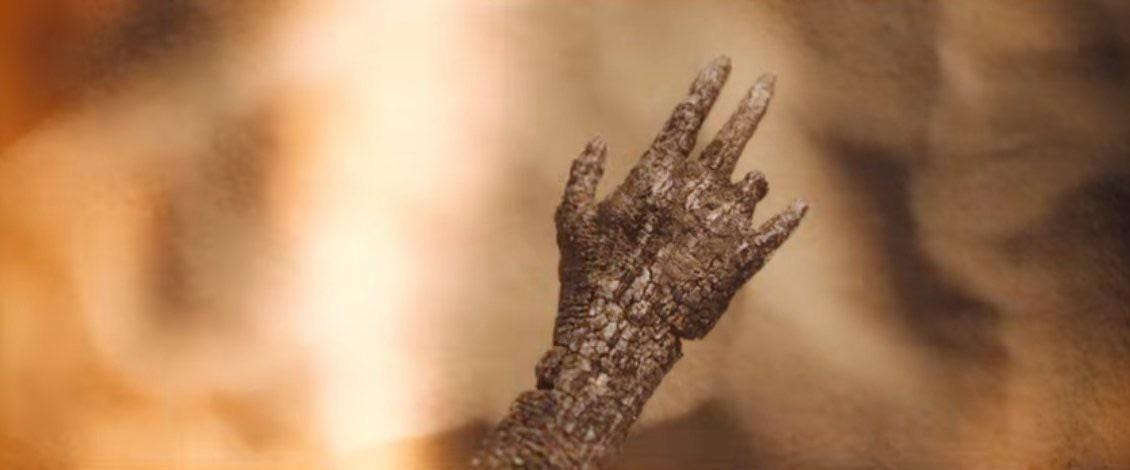I've been looking back lately at the causes of all the bad decisions in my life. A "bad" decision is one that has led to pain and suffering for myself and people that I love. They are generally reactive, as opposed to deliberate. They result in no matching upside to make such pain worthwhile.
The most common thread is acting out of fear.
My fears are many: fear of looking stupid, fear of loss, fear of chaos, fear of facing a painful truth with consequences that seem unbearable. Underlying all of this, the deepest fear is that of no longer being loved. This is the fear that underlies narcissism, codependency, and other personality dysfunctions rooted in insecure attachment.¹
Thinking, fast and slow
Fear is fast and fear is strong.² In many of us, fear is knee-jerk. It dictates our reactions before we have time to realize what we are doing. Whether or not our reaction is “correct” depends on context. If a mama bear blindly destroys a threat to her cubs, the reaction may be considered appropriate. Improperly directed, fear can destroy the people we are meant to love. It is a mother losing her shit at a dance recital over a single misstep. It is a father screaming bloody murder over a dirty plate in the sink. Children learn from these experiences and, without realizing it, form their own patterns of what to fear, and how to avoid those situations. This is how trauma perpetuates itself across generations, unless noticed and painstakingly checked.
Thus we learn patterns of what to fear early on in life. We sense that our parents or friends will withdraw their love for us in response to certain behaviours: e.g. if I display weakness or negative emotion; or fail to excel at a chosen group of tasks - schoolwork, sports, dance, etc - I will no longer be loved, and thus I should fear anything which leads to those situations.
This fear is meant to be crippling. This is not a mental weakness; it is sensible evolution. Young animals - children - are helpless. Without the support of our parents and our herd, we die.
As we grow up, we become capable of keeping ourselves alive. We either learn to understand those fears and dispel them, or we bury them deep into our subconscious and develop impressive coping mechanisms. Those of us blessed (cursed?) with high-analytical-horsepower brains have the unfortunate ability to craft all kinds of elaborate intellectual bullshit around our fear. These mental structures can reach staggering heights of complexity; they can even be called beautiful, in a fucked up kind of way. Imagine the amount of intellectual horsepower and abstract mental jiu-jitsu required to understand something like linear algebra, or affordances. They are cool ideas, and sometimes useful. They are also abstract as hell, and live quite far away from our emotions. It would be foolish to imagine that we don't weave equally distant and complex wrappers around our coping mechanisms for fear as well.
This is why therapy for analytically strong³ people can be difficult. We've put care into weaving these structures. They are the outcome of the same system that has produced the rest of our life, and much of that life is beautiful and worth loving. These structures contain us. These structures are us. To allow someone to see, touch, question, and suggest rearrangement of these structures requires a level of trust and understanding that many parents and friends will never be able to achieve, let alone therapists.⁴
So what do we do? What overcomes fear?
The process is always slow, and made of minuscule steps that, in the moment, don’t seem to achieve much. But I think there can be two inflection points:
1) When a stronger drive overcomes that fear.
The most common candidate for this drive is love - genuine love, in the Buddhist sense.⁵ A friend of mine has a two year old daughter whom she loves to the ends of the earth; she also used to have a deathly fear of needles. When I asked her how she overcame it, she answered that the consequence of not taking blood tests and the impact that it could have on her daughter's health was simply unacceptable to her, so she grit her teeth and bore it. The fear hasn't gone away; something else simply became stronger.
2) When you realize that such fear, combined with your own power, has the capacity to hurt others in terrifying ways.
And that if it is allowed to run unchecked, it will begin to destroy all that is human about you. I think this is the internal struggle that Solzhenitsyn was referring to when he quoted Dostoyevsky:
“The line separating good and evil passes not through states, nor between classes, nor between political parties either -- but right through every human heart.”⁶
Another gorgeous encapsulation of this concept is the Gom Jabbar scene in Dune:
Director Denis Villeneuve describes the Gom Jabbar scene as a test of "humanity overcoming animal impulses":⁷
This is the thrust of parenting, morality, even religion. Animals and human babies act on impulse, unthinkingly, in response to fear. Somewhere along the way, humans develop the capacity to overcome this system with something greater. This is also one of the goals of Buddhist meditation. In moments of peace we build the muscles of correct perception, thought, and action, so that in moments of primal fear, the human part of us is more likely to prevail. The more often we prevail against fear, the more freedom we have from it.
To live without fear is to live as a free man, and to live free is the ultimate form of power. This is the freedom to do what we know to be right, not in the absence of consequences, but in full acceptance of them. We see this in the scene when Paul accepts the pain of the fire, and looks up into the Reverend Mother's eyes (see 3:24 in the scene - an incredible piece of acting by Chalamet):
Villeneuve states that in this moment, the dynamic of power shifts. Fear has left Paul's eyes, and fear has appeared in the eyes of the Reverend Mother. When she realizes that she may have just awakened a power beyond her control, she quickly states "that's enough", and ends the test. Paul withdraws his hand from the box and realizes that it is completely intact and unharmed. The fear was in his head all along.
The fear is always in our head.⁸ The suffering that it leads to is always in our head as well. And anyone who has ever suffered knows that this doesn't make it - or its consequences - any less real.
In fact those consequences are deeply, seriously, painfully real. A proper recognition of this suffering, in ourself and in others, should make it overwhelmingly self-evident that leaving our fears unchallenged will only lead to devastating and unacceptable outcomes, over and over and over again.
The fight is hard. The fight will last a lifetime. It will only ever change form; it will never truly end.
Yet as Jessica stands outside, feeling Paul's pain, she recites the following to give us one more reason to take it on:
"I must not fear. Fear is the mind killer.
Fear is the little death that brings total obliteration
I will face my fear. I will permit it to pass over me and through me
And when it has gone past I will turn the inner eye to see its path
When the fear has gone there will be nothing.
Only I will remain."
🙏 Gratitude goes to Benjamin Parry, Harry Braviner, Julia Lee, and Christopher Masurek for their thoughts on the first draft of this essay. Good parts are probably theirs, bad parts are certainly mine.
1 - Buddhism turns this fear on its head by challenging the idea that love is something to be obtained from external sources in the first place. Buddhist thought posits that it is impossible to love others unconditionally without first loving yourself unconditionally, because the fallacies that we commit with ourselves will be the same fallacies that we commit with others. Thus love is not a commodity to be extracted from others under certain conditions. It is a state of being - and a way of interacting with others - that is the result of living without delusion.
2 - This makes sense. Fear arises in the limbic system, which is generally accepted to be evolutionarily newer than the brainstem (“reptile brain”), but older than the neocortex (where cognition resides). The limbic system is where mood and emotion arise, and it includes the amygdala. Individuals who have their amygdala destroyed have been observed to no longer experience fear. This is the system that activates when a mama bear sees her cubs under attack. Here my knowledge of neurobiology is woefully inadequate: I’ve seen pages which cite the limbic system as running 200 times faster than cognitive thought, with no citation to back it up. I’ve seen pages which describe the limbic system as running several milliseconds faster than cognitive thought, also with no citation. I’ve also see other models which suggest that sensory stimuli first go through the limbic system, where they are mapped to pre-existing patterns of threats and responded to accordingly; and when no match is found, they are passed to the neocortex for further processing. I’m not sure anyone really knows the exact mechanism, but I think many of us can empathize the with experience of feeling “crippled” or “overwhelmed” by our emotions, both positive and negative, to the point where we can’t “think straight”.
3 - Note that I'm not using the word "intelligent" here, because it's not specific enough to mean anything. Is it still valid to consider yourself smart if your decisions bring profound and endless pain to yourself and the people that you love? Many people would say no.
4 - During EF's TO3 cohort I interviewed many people regarding their struggles with finding a therapist. Without generalizing, this is a population that over-indexes on analytically strong, high achieving people with deep insecurities who are nevertheless quite self-aware. Here is a common thread that arose among them: it is hard to work with a therapist who you don't trust and respect; and it is hard to work with a therapist who doesn't have the capacity to understand you.
5 - Love in the Buddhist sense is composed of four elements: maitreya - lovingkindness; karuna - compassion and the capacity to transform someone’s suffering; mudita - the capacity to bring someone joy; and upeksha - equanimity, which I read as loving all people, and loving all parts of a person - including the parts that do not serve you. To borrow a Thich Nhat Hanh phrase, “love is made of a substance called understanding” - because you cannot transform someone’s suffering or bring them joy if you do not understand them. Love is also non-transactional, and given with no expectations or conditions. Notice that this differs remarkably from many Western conceptions of love: there is nothing in here about commitments carved in stone, prioritizing one person above all others, or contracts of reciprocity. To paraphrase one of Thich Nhat Hanh’s dharma talks: those are trade deals meant to guard against change and uncertainty, and secure a reward for your efforts. There is a place for those things, but they are not love.
6 - The full quote: “The line separating good and evil passes not through states, nor between classes, nor between political parties either -- but right through every human heart -- and through all human hearts. This line shifts. Inside us, it oscillates with the years. And even within hearts overwhelmed by evil, one small bridgehead of good is retained.”
7 - The Reverend Mother opens the scene by stating that "an animal caught in a trap will gnaw off its own limb to save itself. What will you do?"
8 - In fact, Buddhism wholesale rejects the dichotomy of things being "real" vs "in our head". To view perception as the interaction of two separate systems - the real world "out there" vs our head "in here" - is a false split. To ask whether the "fire" being conjured by the Reverend Mother was "real" or "imagined" is to ask the wrong question. The entire thing is reality: the matter and the objects and our perception of them and the mental formations that arise. The entire thing is one. The matter and the objects are often beyond our control; being deliberate and awake in those perceptions and mental formations is not, and that is the exercise of Buddhist thought. Done incorrectly, this produces suffering - samsara. Done correctly, this produces enlightenment - and freedom.






